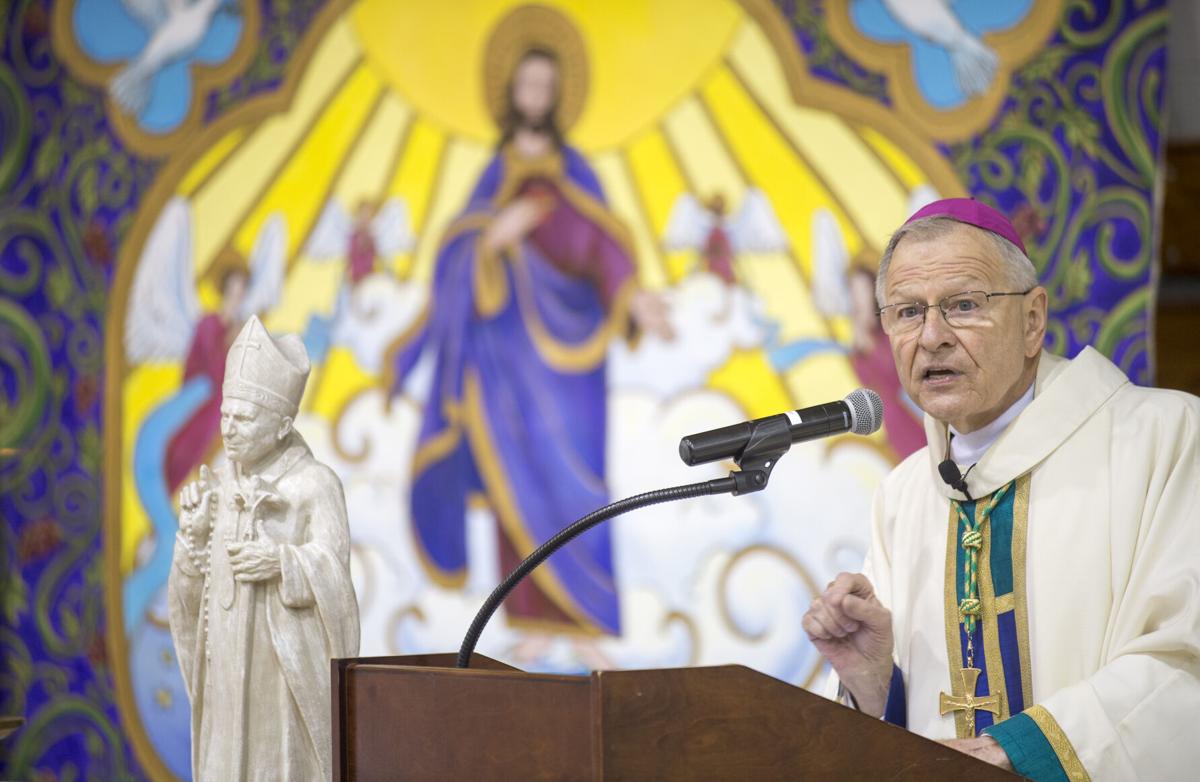
As we approach the upcoming local, state, and national elections, I have received many emails, calls and letters with questions from Catholics and other people of faith regarding how to vote. I would like to take this opportunity to clarify some important points, particularly for Catholics.
Let me start off by saying that no member of the Catholic bishops, priests, deacons, religious or laity in church leadership may endorse or oppose any candidate for office. The U.S. Catholic Bishops document “Forming Consciences for Faithful Citizenship” prohibits any endorsement of a candidate by church leadership but challenges Catholics to vote with a properly formed conscience.
To quote the document, “Clergy and lay people have complementary roles in public life. We bishops have the primary responsibility to hand on the Church's moral and social teaching. Together with priests and deacons, assisted by religious and lay leaders of the Church, we are to teach fundamental moral principles that help Catholics form their consciences correctly, to provide guidance on the moral dimensions of public decisions, and to encourage the faithful to carry out their responsibilities in political life. In fulfilling these responsibilities, the Church's leaders avoid endorsing or opposing candidates.”
It is in my role as bishop, charged with handing on the Church’s moral and social teaching, that I write today. It is our right and responsibility to vote with a well-formed conscience. A well-formed conscience is formed under the guidance of the Holy Spirit through prayer, Scripture, and reflecting and informing oneself about the moral teachings of the Catholic Church as guided by “Faithful Citizenship." It is our responsibility as disciples of Jesus to look carefully at the platform of each candidate and compare these principles to the teaching of Christ and the Church.
There are many moral and social issues we must be aware of to form our conscience and decide how to vote. The issues of public policy concern for Catholics are listed below. Abortion and euthanasia are identified in the bishops’ document as being preeminent issues because it is upon the protection and sanctity of human life within the family unit that all other life issues are built. This does not mean we can dismiss or ignore other serious threats to human life and dignity or caring for the vulnerable among us, but we must stand firm on issues that directly attack life itself, the most fundamental good and the condition for all others. We must emphasize the need to respect all human life regardless of race, religion, cultural, or social differences.
As Christians, we believe in the values handed on to us by Jesus and our tradition. I invite the faithful and all people of goodwill to study carefully the information from the bishops’ conference and, through prayer, make a responsible decision based on a well-formed conscience in the upcoming election.
Issues of public policy concern for Catholics include:
- Address the preeminent requirement to protect human life.
- Protect the fundamental understanding of marriage as a lifelong commitment between a man and a woman.
- Achieve comprehensive immigration reform.
- Help families and children overcome poverty and ensure access to education.
- Ensure full conscience protection and religious freedom.
- Provide health care that respects human life and dignity.
- Oppose unjust discrimination.
- Establish and comply with moral limits on military force.
- Pursue peace, protect human rights and religious liberty, and advance economic justice and care for creation.
Let us together pray for our country and for peace in our world.
Gregory Aymond is archbishop of New Orleans.
No comments:
Post a Comment